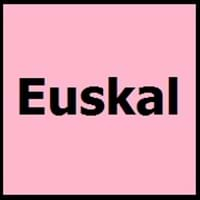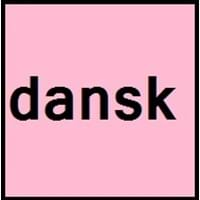Basque vs Danish
Countries
Basque Autonomous Community, Navarre
Denmark, European Union, Faroe Islands, Greenland, Nordic Council
National Language
France, Spain
Denmark, Faroe Islands, Germany, Greenland
Second Language
Not spoken in any of the countries
Not spoken in any of the countries
Speaking Continents
Asia, Europe
Europe, North America, South America
Minority Language
Not spoken in any of the countries
Argentina, Brazil, Canada, Germany, Greenland, Norway, Sweden, United States of America
Regulated By
Euskaltzaindia, National Languages Committee
Dansk Sprognævn (Danish Language Committee)
Interesting Facts
- The Basque language is the oldest European language.
- Basque alphabet include many Roman letters.
- Danish, Norwegian and Swedish are mutually intelligible, that means if u learn Danish is almost like learning three languages in one.
- There are 9 vowels in Danish language, which can be pronounced in 16 different ways.
Similar To
Spanish
Norwegian and Swedish
Derived From
Not Available
Old Norse Language
Alphabets in
Basque-Alphabets.jpg#200
Danish-Alphabets.jpg#200
Writing Direction
Not Available
Left-To-Right, Horizontal
Thank You
Eskerrik asko
Mange tak
How Are You?
Zer moduz?
Hvordan har du det?
Good Evening
Arratsalde on
God aften
Good Afternoon
Arratsalde on
God eftermiddag
Good Morning
Egun on
God morgen
I Love You
Maite zaitut
Jeg elsker dig
Excuse Me
Barkatu
Undskyld mig
Dialect 1
Navarro-Lapurdian
Scanian
Where They Speak
France
Sweden
Dialect 2
Souletin
Jutlandic
Where They Speak
France, Soule, Spain
Denmark
How Many People Speak
Not Available
Dialect 3
Biscayan
Bornholmsk
Where They Speak
Spain
Island of Bornholm
Speaking Population
Not Available
Not Available
Native Name
Not available
dansk
Alternative Names
Euskara, Euskera, Vascuense
Dansk, Rigsdansk
French Name
basque
danois
German Name
Baskisch
Dänisch
Pronunciation
Not Available
[d̥ænˀsɡ̊]
Ethnicity
Basque people
Danish people or Danes
Origin
c. 1000
c. 1100 AD
Language Family
Vasconic Family
Indo-European Family
Subgroup
Not Available
Not Available
Branch
Not Available
Not Available
Early Forms
Proto-Basque, Aquitanian
Old Danish, Early Modern Danish
Standard Forms
Basque
Rigsdansk
Signed Forms
Not Available
Signed Danish
Scope
Not Available
Individual
ISO 639 6
Not Available
Not Available
Glottocode
basq1248
dani1284
Linguasphere
40-AAA-a
5 2-AAA-bf & -ca to -cj
Language Type
Not Available
Living
Language Linguistic Typology
Subject-Object-Verb
Subject-Verb-Object
Language Morphological Typology
Agglutinative
Fusional
Basque and Danish Language History
Comparison of Basque vs Danish language history gives us differences between origin of Basque and Danish language. History of Basque language states that this language originated in c. 1000 whereas history of Danish language states that this language originated in c. 1100 AD. Family of the language also forms a part of history of that language. More on language families of these languages can be found out on Basque and Danish Language History.
Basque and Danish Greetings
People around the world use different languages to interact with each other. Even if we cannot communicate fluently in any language, it will always be beneficial to know about some of the common greetings or phrases from that language. This is where Basque and Danish greetings helps you to understand basic phrases in Basque and Danish language. Basque word for "Hello" is Kaixo or Danish word for "Thank You" is Mange tak. Find more of such common Basque Greetings and Danish Greetings. These greetings will help you to be more confident when conversing with natives that speak these languages.
Basque vs Danish Difficulty
The Basque vs Danish difficulty level basically depends on the number of Basque Alphabets and Danish Alphabets. Also the number of vowels and consonants in the language plays an important role in deciding the difficulty level of that language. The important points to be considered when we compare Basque and Danish are the origin, speaking countries, language family, different greetings, speaking population of these languages. Want to know in Basque and Danish, which language is harder to learn? Time required to learn Basque is 88 weeks while to learn Danish time required is 24 weeks.





